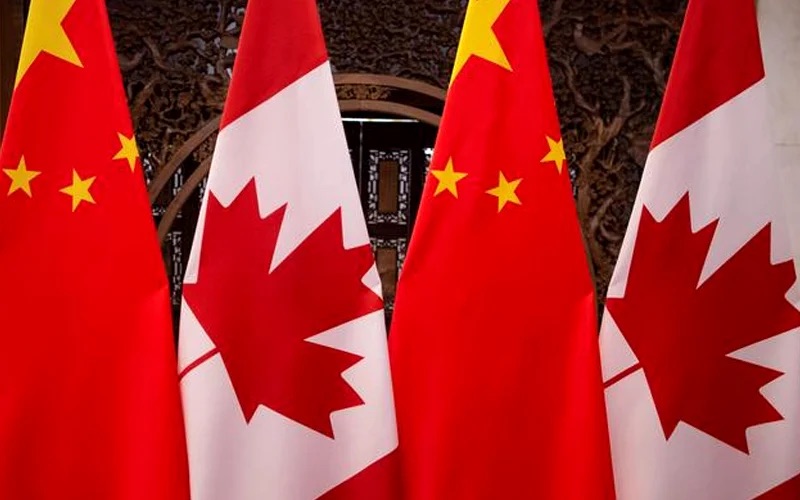
China’s ambassador to Canada, Wang Di, has proposed a partnership between Beijing and Ottawa aimed at resisting American “bullying” and pushing back against U.S. tariffs. Wang suggested that both countries could collaborate to challenge Washington’s unilateral trade policies, which he claims undermine global trade rules.
China and Canada’s Shared Interests
Wang emphasized that Canada should view China as an opportunity rather than a threat, noting that both nations are on the same side regarding U.S. tariffs. China has taken concrete steps to counter the U.S. tariffs, including imposing its own tariffs on Canadian products such as canola and pork, in retaliation for the U.S. 25% tariffs on steel and aluminum imports. Wang further indicated that Beijing and Ottawa should work together to convince other countries to resist U.S. influence and make Washington face consequences for its actions. He also suggested that China and Canada should focus on market principles and trade rules, rather than being swayed by ideological biases.
Wang highlighted China’s growing trade ties with Western Canada, including record imports of Canadian crude oil due to the Trans Mountain pipeline. This partnership, he suggested, could bring more economic opportunities for both countries. He spoke positively about recent discussions with Saskatchewan Premier Scott Moe, signaling China’s openness to expanding trade with Western Canadian provinces. Wang added that China has seen significant support in Canada for deeper bilateral ties, especially with an increase in visa applications from Canadians to visit China.
Controversial Tariffs and Trade War Fallout
The ongoing trade conflict between the U.S. and China continues to have far-reaching effects on global markets. China’s tariffs on Canadian exports have caused economic strain, particularly in the agricultural sector. Canada recently imposed a 100% tariff on Chinese-made electric vehicles, which led to retaliatory tariffs on Canadian exports. The diplomatic and economic tensions continue to escalate as the U.S. proposes new trade deals aimed at reducing its reliance on China, further complicating the situation for Canada.
Despite these challenges, Canadian officials remain divided over how to handle China. While some members of the Canadian government have taken a hard stance against Beijing, accusing it of supporting Russia’s invasion of Ukraine and interfering in Canadian politics, others argue that the country should seek to reset relations with China based on mutual interests. Wang asserted that China has always viewed Canada as a friend and partner, suggesting that if both countries act in good faith, they can work toward a more prosperous and balanced relationship.
Author’s Opinion
The approach of forming a partnership with China against U.S. tariffs is a delicate balancing act for Canada. While it may seem appealing to oppose the U.S. on trade matters, aligning too closely with China could have long-term diplomatic and economic consequences. Canada must tread carefully and prioritize its own national interests while maintaining relationships with both global powers.
Featured image credit: FMT
Follow us for more breaking news on DMR
